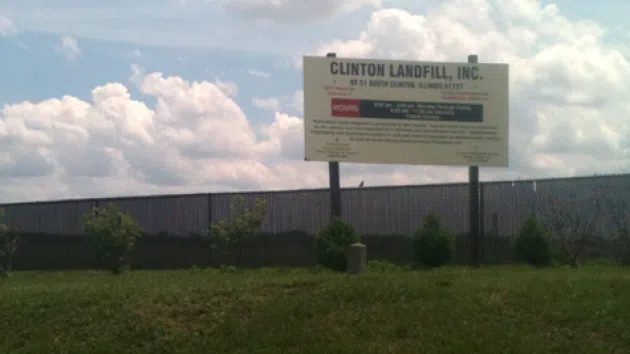A coalition of communities gathered in 2014 to stop toxic dumping at Clinton landfill that could effect the Mahomet Aquifer. (WJBC file photo)
By Terry James
BLOOMINGTON – Water safety was a serious issue this year as public officials spoke out about potential contamination of drinking water. There is concern over carcinogens being dumped in the clinton landfill which sits on top of the Mahomet Aquifer.
In February, the Town of Normal hosted a summit on the future of Central Illinois' largest source of drinking water. The Mahomet Aquifer and Clinton Landfill debate was all about the potential dumping of toxic chemical waste directly above the water source. One person concerned is Normal Mayor Chris Koos.
"We want people in the Bloomington-Normal area to know about this serious threat to their water supply," Koos said. "We really need some help in taking action on this subject."
The aquifer services nearly one million Central Illinois residents from over 80 communities, including Champaign, Decatur, Clinton, and Bloomington-Normal. For Koos, hazardous toxic chemicals being stored over a major source of drinking water makes no sense.
"It's PCBs being stored and it takes about 10,000 years for that material to break down," he said. "If that stuff gets into the water supply, it's game over for Central Illinois; the region would be decimated."
In August, McLean County joined the more than one dozen communities against the dumping of toxic PCB's into the Clinton landfill.
"When you talk about the Mahomet Aquifer, you talk about such a substantial resource," said Sorenson. "It is so large and it is so important to over 750,000 folks right here in central Illinois."
County Board Chairman Matt Sorensen said the project must be stopped before the waste endangers the Mahomet Aquifer, a major water supplier.
"It is hard to imagine that McLean County or anybody could do something if something detrimental were to happen," Sorensen said. "That's really why we are engaged now."
The state has moved to block PCBs from Clinton, a decision that is being appealed. the federal government has yet to weigh in. Opposing communitieis hope a sole-source designation for the aquifer will bolster their case.
U.S. Sen. Dick Durbin is urging the U.S. Environmental Protection Agency to declare the central Illinois aquifer an important drinking water source and protect it from potential pollution.
Terry James can be reached at terry@wjbc.com.





